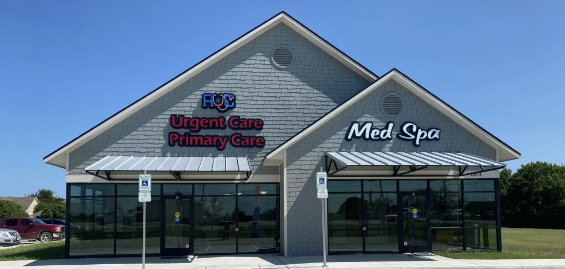In today’s fast-paced world, health concerns don’t always align with regular doctor hours. That’s where urgent care centers come to the rescue. These facilities provide convenient and timely medical attention for non-life-threatening conditions, offering a multitude of benefits that cater to the needs of individuals across the United States.
Accessible Care, Anytime, Anywhere
One of the most significant advantages of urgent care centers is their accessibility. These facilities operate beyond traditional office hours, often providing services during evenings, weekends, and holidays. This accessibility ensures that individuals can seek medical attention promptly, even when their primary care physician’s office might be closed.
Prompt Attention to Non-Emergency Conditions
Urgent care centers efficiently handle a wide array of non-life-threatening medical issues, such as minor injuries, flu symptoms, infections, and more. The prompt attention given to these concerns helps alleviate discomfort and prevents conditions from worsening, ensuring individuals receive timely treatment without having to endure long waits at emergency rooms.
Cost-Effective Healthcare
Another notable benefit of urgent care is its cost-effectiveness. For individuals without health insurance or those with high deductibles, urgent care centers offer a more affordable alternative to emergency room visits. They typically have transparent pricing and lower co-pays, making quality healthcare more financially accessible.
Convenience and Minimal Wait Times
Unlike emergency rooms that prioritize severe cases, urgent care centers follow a first-come, first-served approach. This ensures minimal waiting times for patients seeking treatment, allowing them to receive attention swiftly without prolonged delays.
Complementary Services
Many urgent care centers provide additional services beyond immediate medical care. These may include diagnostic tests, vaccinations, wellness screenings, and even occupational health services, catering to both individual and corporate needs.
Local Community Support
Urgent care centers often integrate themselves within local communities, becoming reliable healthcare resources. Their presence contributes to healthcare accessibility, particularly in areas with limited medical facilities, thereby bridging gaps in healthcare services.
When to Choose Urgent Care
Understanding when to opt for urgent care over emergency services or primary care physicians is crucial. Urgent care is ideal for non-life-threatening situations that require prompt attention but are not severe enough to warrant an emergency room visit. Conditions like minor fractures, minor burns, flu symptoms, and infections are well-suited for urgent care treatment.
Urgent care centers play a vital role in the healthcare landscape of the United States, offering accessible, cost-effective, and timely medical services. Their ability to provide prompt attention to non-emergency conditions, coupled with convenience and additional services, makes them a valuable asset for individuals seeking immediate healthcare solutions.


